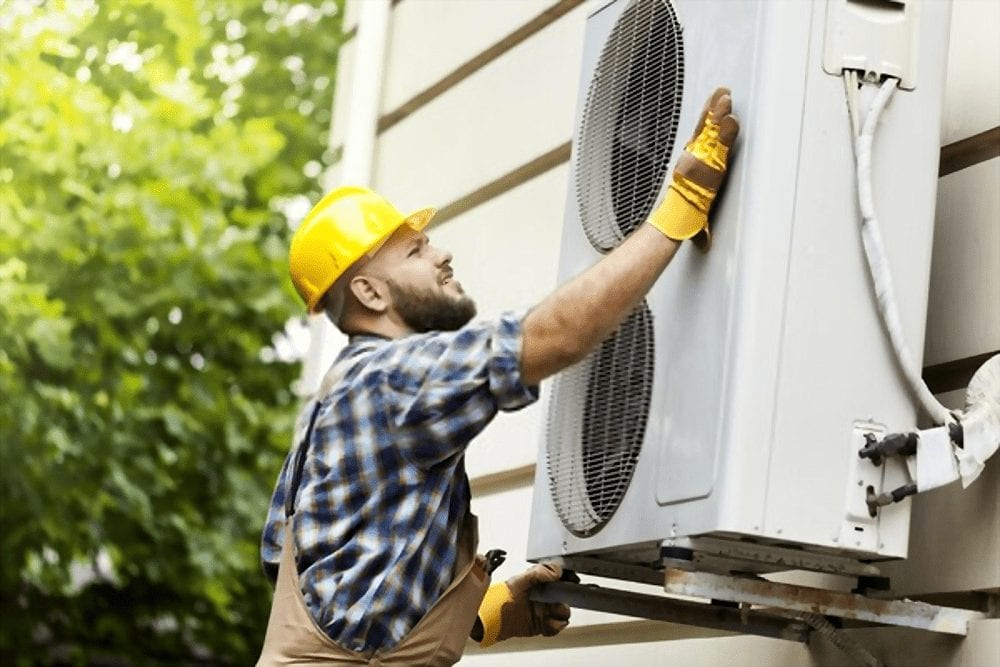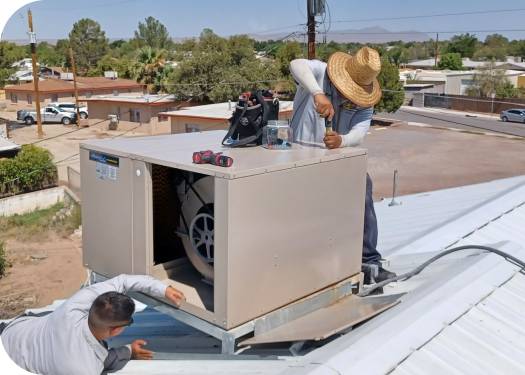The Importance of HVAC Installation: Secret Factors To Consider for a Comfortable Indoor Setting
The installation of a Cooling and heating system is a crucial part in achieving an energy-efficient and comfortable interior environment. Aspects such as the viability of the system for certain building needs, correct sizing to prevent ineffectiveness, and the expertise of contractors for a top quality setup play pivotal duties. The adoption of advanced modern technologies can substantially improve system performance.
Picking the Right System

When picking an a/c system, it is important to examine the capacity required to properly warm or cool the area without overworking the system, which can result in boosted wear and operational prices. Consulting with an expert a/c specialist can provide beneficial insights into selecting a system that aligns with both the expected use and the architectural design patterns of the structure.
Furthermore, taking into consideration the integration of wise modern technology can boost system management and monitoring, using better control and prospective cost savings. By thoroughly evaluating these elements, one can ensure the selection of a heating and cooling system that not only meets prompt requirements however also adds to long-term operational sustainability and resident comfort.
Understanding Energy Effectiveness
Understanding energy performance is vital when taking into consideration an A/c installation, as it directly affects both the ecological footprint and the operational expenses of the system. The effectiveness of a HVAC system is usually shown by rankings such as SEER (Seasonal Energy Efficiency Ratio) for air conditioners or AFUE (Annual Fuel Use Performance) for heaters.

Purchasing an energy-efficient cooling and heating system not only translates to set you back financial savings however also adds positively to environmental preservation by reducing greenhouse gas discharges. Furthermore, lots of jurisdictions offer incentives or discounts for the setup of high-efficiency systems, further boosting their financial allure.
When reviewing energy performance, consider advanced functions such as variable speed electric motors, smart thermostats, and zoning capacities. These technologies improve the system's capacity to adapt to varying demand, thereby maximizing energy usage. It is important to consult with HVAC experts who can supply insights right into the most effective options tailored to details environment problems and use patterns, ensuring optimal effectiveness and convenience.
Importance of Proper Sizing

On the other hand, a small HVAC system will battle to reach the wanted temperature level, particularly throughout severe climate conditions. This can result in continual operation, resulting in greater energy prices and prospective overheating of system parts. Furthermore, inadequate sizing click reference can cause inconsistent temperature level distribution, causing specific areas of a structure to be also trendy or as well warm.
To accomplish the right sizing, a detailed lots computation is crucial. This entails evaluating various factors such as the structure's square video footage, insulation levels, window types, and local environment problems. By precisely figuring out the heating and cooling down demands of a room, HVAC professionals can recommend systems that make sure effective procedure, minimized energy consumption, and enhanced interior comfort.

Guaranteeing Top Quality Installation
A seamless Heating and cooling installment is the cornerstone of a system's long life and efficiency. This professional need to have thorough understanding of diverse systems and be experienced at examining the particular needs of try here the structure.
Appropriate installation exceeds simple placement of tools. It includes precise calibration to make certain ideal air flow, efficient power usage, and uniform temperature level distribution. This includes accurate ductwork installment, guaranteeing links are safe and leak-free, which is important for keeping system efficiency and interior air high quality.
Additionally, the application of advanced analysis devices during installation can identify possible problems early, avoiding costly fixings and prolonging the lifespan of the system. The contractor should also ensure that all elements work and that the system conforms with neighborhood building ordinance and guidelines.
Normal Maintenance Practices
Once the foundation for a high-performing cooling and heating system is developed through high quality setup, the emphasis must change to regular maintenance practices to make sure ongoing performance and reliability. Routine maintenance not only extends the lifespan of the system but also enhances indoor air quality, reduces power intake, and protects against pricey fixings. Essential upkeep jobs consist of routinely altering air filters, cleaning up evaporator and condenser coils, and checking the system for leakages or clogs.
Air filters click need to be changed or cleaned up each to 3 months, relying on use and ecological factors. This easy task can substantially boost air circulation and system performance (emergency ac service Brownwood TX). Cleansing the evaporator and condenser coils avoids dust build-up, which can prevent warmth absorption and cooling ability. Additionally, expert service technicians must check the system annually, checking for cooling agent levels, electric links, and general system efficiency.
Interest to ductwork is also essential; securing and cleaning up ducts regularly stops air loss and contamination. Executing an upkeep routine ensures that small problems are dealt with prior to they escalate, safeguarding the system's functional integrity. By sticking to these maintenance techniques, property owners can maximize their a/c system's performance and keep a comfortable interior environment year-round.
Conclusion
By choosing a proper system tailored to specific structure demands, recognizing energy efficiency, and making sure correct sizing, ineffectiveness can be lessened. The involvement of skilled service providers assurances top quality setup, while the assimilation of sophisticated technologies improves system efficiency and surveillance.
Several kinds of Heating and cooling systems are readily available, including split systems, crossbreed systems, duct-free systems, and packaged heating and air systems, each with distinctive advantages and constraints.
Understanding power effectiveness is essential when taking into consideration an A/c installation, as it directly influences both the environmental impact and the operational prices of the system. The effectiveness of a Heating and cooling system is commonly suggested by ratings such as SEER (Seasonal Power Effectiveness Ratio) for air conditioners or AFUE (Yearly Fuel Usage Performance) for heating systems (Plumber in Brownwood TX).As soon as the structure for a high-performing HVAC system is established with top quality installation, the focus ought to change to normal upkeep practices to guarantee continued effectiveness and integrity. In addition, professional technicians ought to examine the system every year, inspecting for cooling agent degrees, electric links, and total system efficiency